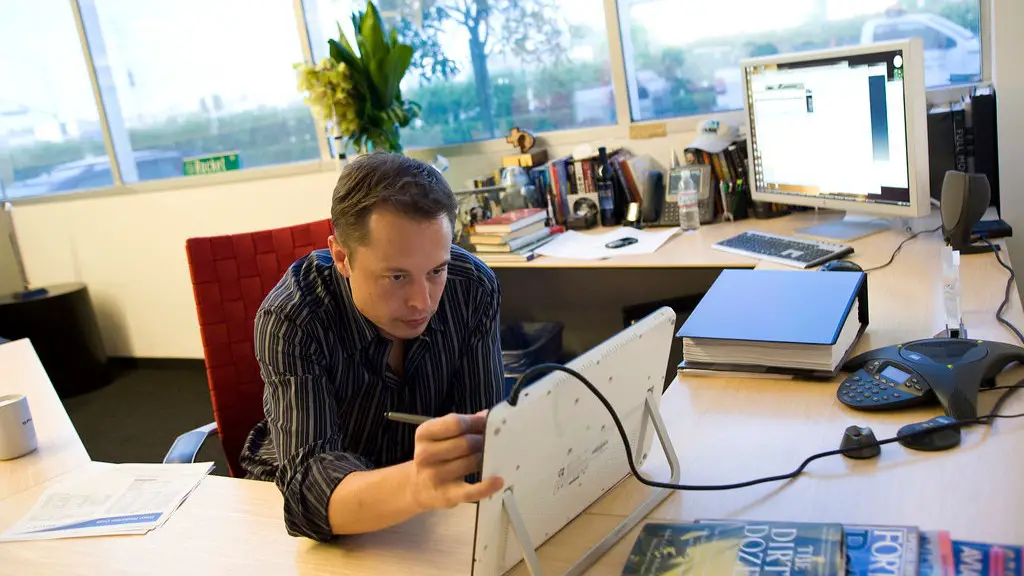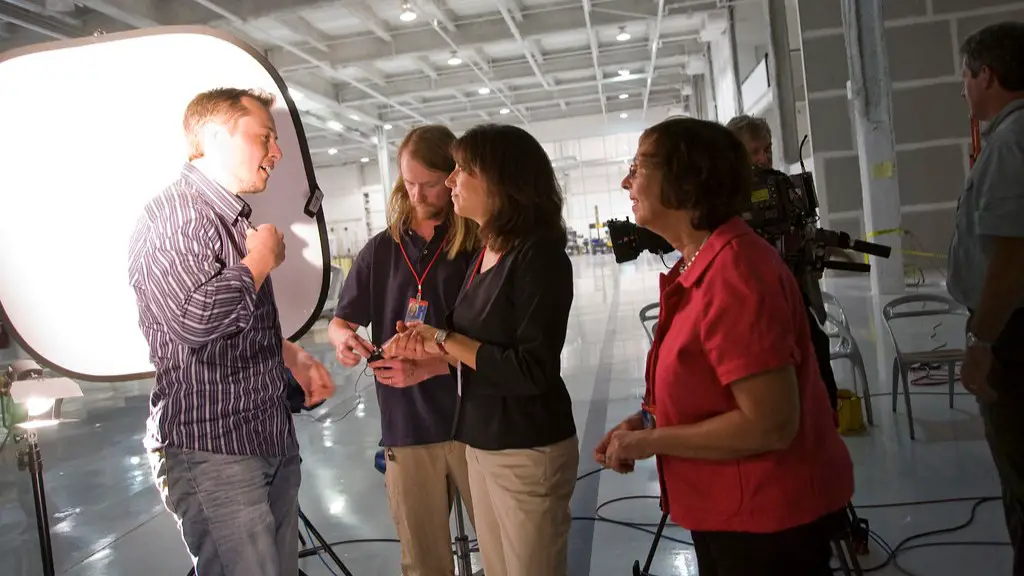Elon Musk’s SpaceX began operations in 2002, a time when the technology of space exploration was stagnant and the combination of high costs and lack of innovation was a major concern for potential space projects. Musk’s company was driven by a strong passion for uncovering new frontiers and a keen eye for cost effectiveness. With SpaceX, he set out to revolutionize the space industry and take it to a whole new level.
SpaceX achieved its first major step towards commercial space travel when, in 2012, it became the first private company in history to successfully launch, orbit and retrieve a spacecraft, and then followed it up by launching more firsts, such as the first commercial spacecraft to visit the International Space Station and the first recycled rocket launch. The company is now a lead contractor in cargo resupply operations to the ISS, boasting a fleet of rocket systems and the world’s largest production facility dedicated to rocket construction.
Having already accomplished some of the biggest breakthroughs, such as launching the world’s most powerful operational rocket, the Falcon Heavy, and deploying a reusable rocket landing system, SpaceX continues to push boundaries. In late 2018, they successfully launched their Crew Dragon spacecraft, thus becoming the first private company to send humans to space.
SpaceX’s main mission is to reduce the cost of space travel, making human spaceflight more feasible. To achieve this, the company is using their reusable rockets, which are the only ones of their kind. This is a huge advantage for the company, enabling them to manufacture rockets for about a tenth of the cost of their competitors and to launch them at a fraction of the cost. In addition, SpaceX is developing advanced launch technologies and spacecraft designed for interplanetary travel, as part of their Mars and Moon exploration projects, which is in-line with their main goal – to enable and eventually facilitate human settlements on Mars.
Elon Musk’s success lies in the fact that he is an ambitious and unconventional visionary who isn’t afraid to challenge and innovate. He is driven by a deep passion for discovering the unknown, and is willing to take risks in order to achieve his goals. He has a knack for inspiring and motivating people to work harder, and this has allowed him to build an incredibly talented and dedicated team of professionals.
SpaceX’s meteoric rise to become one of the leading companies in the space exploration field is due in no small part to Elon’s relentless efforts and dedication. His unshakable commitment to the industry, combined with his impressive vision and technical excellence, has made SpaceX a household name and has revolutionized the space industry.
Reducing Cost of Space Travel
One of SpaceX’s main focuses is cost efficiency and quality control. They have implemented a variety of strategies to ensure that costs are as low as possible. For example, the company is exploring ways to reuse its existing equipment, such as the Falcon 9 rocket, and also make use of readily available resources in its spacecraft designs, such as its titanium and carbon fiber components.
SpaceX also collaborates with a variety of industry leaders, such as Boeing and Lockheed Martin, in its mission to reduce space travel costs. By working together, their collective experience, expertise, and resources combined allow them to overcome any challenges and optimize the production of their products.
The company is also continuously exploring new technologies to help make space travel cheaper, faster and more reliable. For example, SpaceX has built a large-scale Raptor engine, which produces a greater thrust than traditional engines and is capable of providing a faster and more efficient propulsion for rockets. They are also collaborating with NASA on creating a revolutionary new pressure-fed rocket engine, which could potentially reduce the cost of creating launch vehicles by an estimated 50%.
SpaceX’s emphasis on reducing costs has proven successful, as SpaceX rockets launched from the U.S International Space Station have served as the most cost-efficient option in the space industry to date. This is largely due to the company’s efficient production methods and use of advanced technologies.
Future Plans
With SpaceX setting its sights on Mars, its ambition does not end with developing and launching individual spacecraft. Elon Musk wants to begin constructing an entirely new space infrastructure, which will include a giant spacecraft, colonizing the red planet, setting up research habitats, providing entertainment and recreation, and launching satellites. SpaceX is also planning to revolutionize satellite internet in 2020.
The company has tested several prototypes of the promised global internet system, including the Falcon 9 launcher and the Starlink Series, a network of satellites designed to provide internet access to almost anyone on the planet. These satellites will be designed to be in constant contact with each other, allowing SpaceX to deliver high-speed internet access to underserved areas.
SpaceX has already deployed over a hundred operational satellites, and its goal is to deploy up to 12,000 satellites in the future. This will give SpaceX a competitive edge in providing reliable, cost-efficient internet coverage worldwide, especially in remote and rural regions. Additionally, SpaceX is also looking to diversify its mission, exploring a variety of other areas, such as spacecraft construction, thermonuclear propulsion, and the use of artificial intelligence.
Space Exploration Benefits
Space exploration has immense benefits for humanity. By gaining a better understanding of our universe, and ultimately furthering our discovery of space, we are also furthering our knowledge about ourselves. Space exploration holds the potential for new sources of energy, including solar and wind power, as well as new sources of materials, such as minerals, gems, and soil. It also provides for new applications for medical science, such as understanding aspects of human physiology and developing treatments for illnesses.
Space exploration opens up endless possibilities for humans. It will not only shape the future of humanity, but also enable us to reach new heights of technological advancement and global cooperation. With the help of SpaceX, humans have been able to explore farther than ever before, allowing us to gain a better understanding of our universe and potentially unlock powerful sources of energy and materials that we can use to build a better future for generations to come.
Space exploration is also a great source of inspiration for young people, as it rekindles their sense of wonder and exploration. By showing them the incredible things that can be accomplished with hard work and dedication, and by providing them with an avenue for technological and scientific advancement, space exploration can foster a new generation of problem-solvers.
Environmental Impact of Space Exploration
Space exploration and tourism will undoubtedly have an environmental impact, particularly when considering the use of new technologies, such as propulsion systems and rockets. These activities can lead to noise and vibrations, and the exhaust of toxic materials into the atmosphere, as well as causing damage to fragile ecosystems and habitats.
Space exploration and tourism also have some associated risks, including the potential for accidents or catastrophic events in space. Examples of these include malfunctioning launch vehicles, malfunctions of life support systems, and collisions with other spacecraft. These risks must be carefully considered and managed to ensure the safety of those involved.
In addition, space exploration and tourism may also have the potential to generate waste. This waste could come in the form of fuel, chemicals, and plastics, which are all potentially dangerous if left unchecked. Thus, it is important to manage this waste in accordance with regulations set by the Government, to ensure that the environment remains safe and healthy.
It is also important to note that space exploration and tourism can have a positive environmental impact, by enabling the exploration of the universe and aiding in the discovery of new sources of energy, materials, and knowledge. Space exploration can also provide important data, which can be used to gain insight into climate change and help inform policies which aim to protect the environment.





